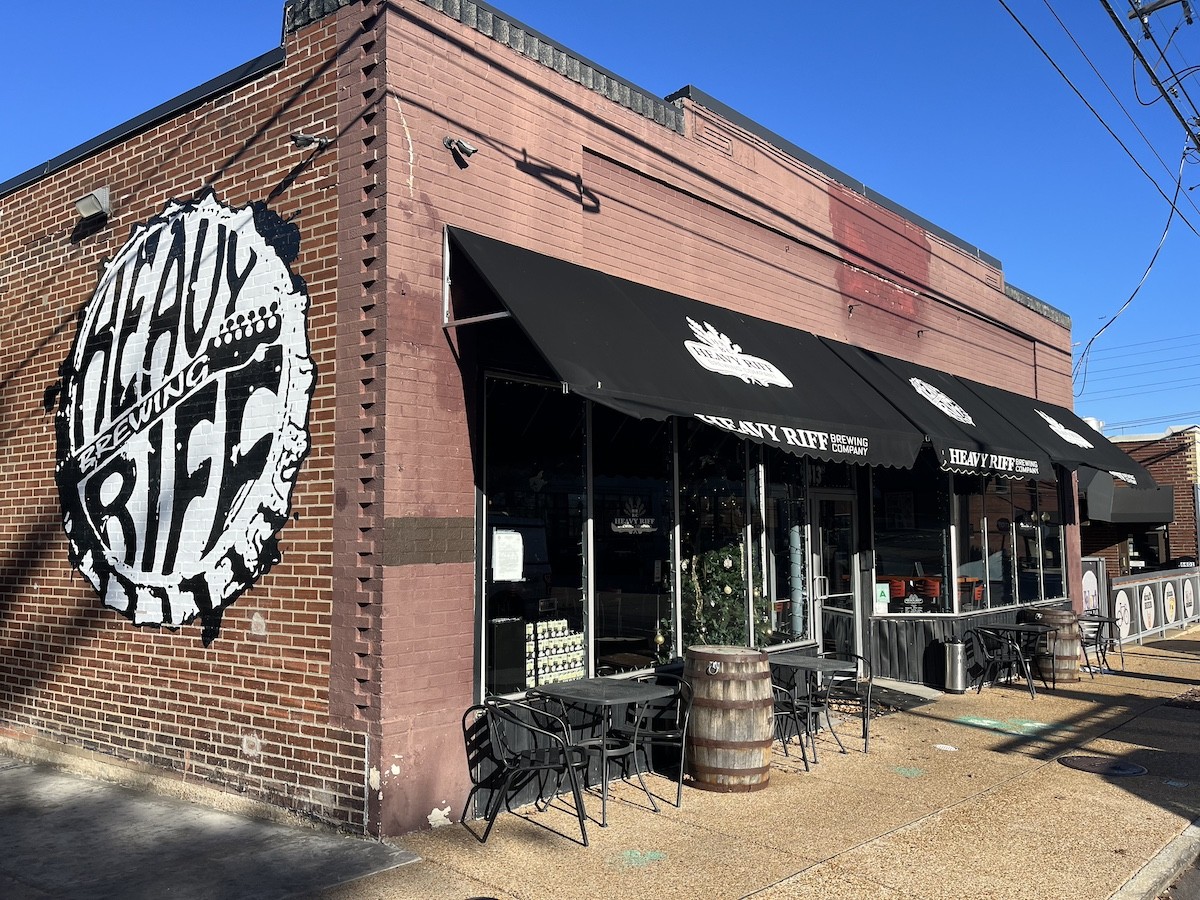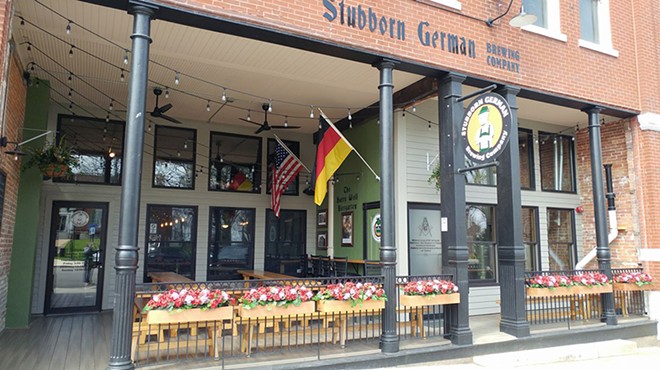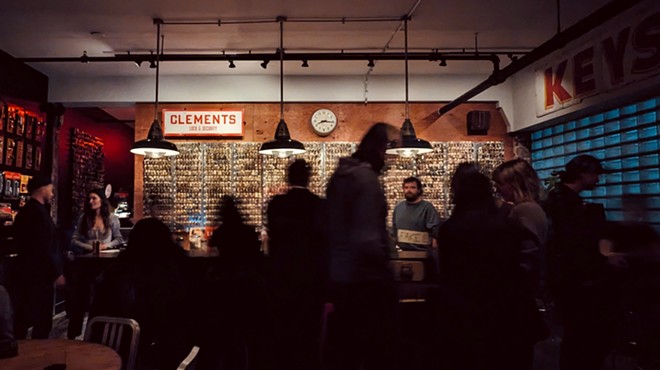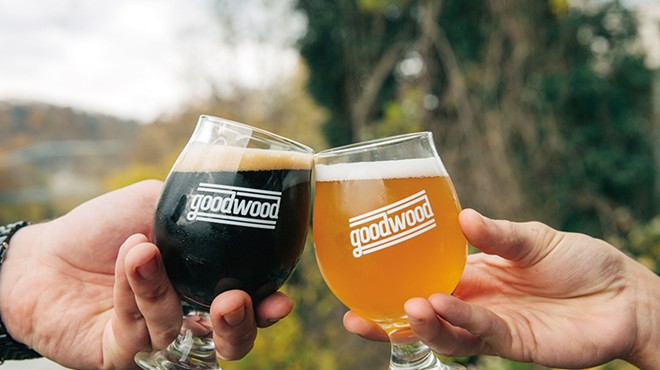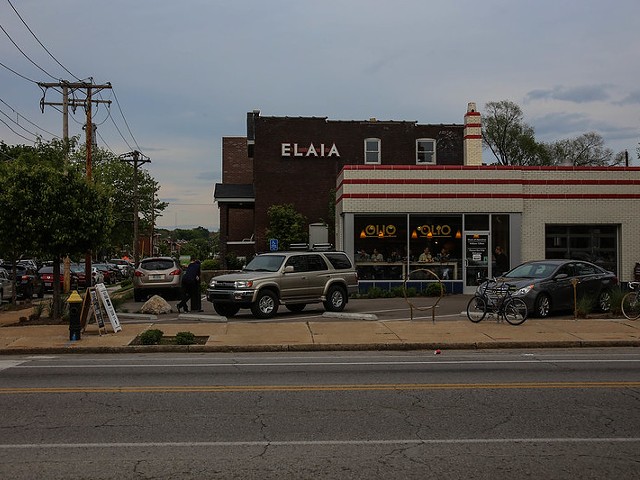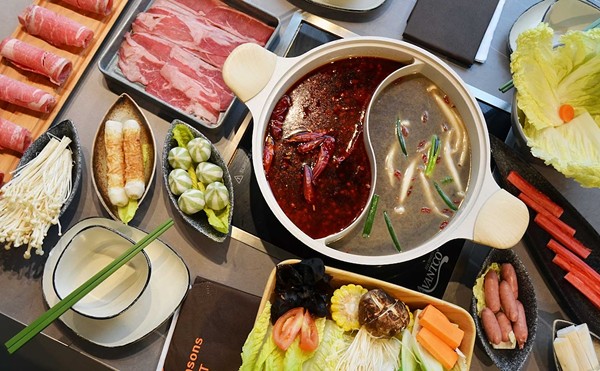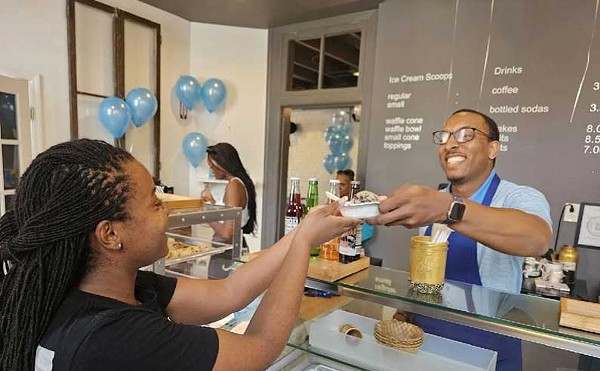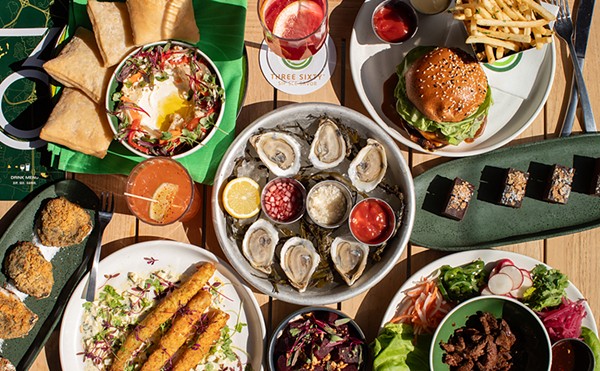Barrel-aged beer is big business in this town. Four of the highest-rated beers in the world — Side Project’s M.J.K., Beer : Barrel : Time, and O.W.K. and Perennial’s Barrel-Aged Abraxas — are brewed, bourbon-barreled and aged right here in St. Louis. Bottles of each run over $50 apiece (750mL), though SP often bundles its brews with other beers in packages that cost into the $100s. Even so, they tend to sell out quickly. You can usually find pours in the respective taprooms easily enough — at up to $6 and $8 per ounce. (Worth every penny, in this writer’s humble opinion.) The secondary market for many of these oak-soaked beers starts in the triple digits and sometimes reaches into the $1,000s per bottle (Not sure any beer is worth that).
All of that said, when Heavy Riff Brewing (6413 Clayton Avenue, heavyriffbrewing.com) got into the BA ballgame with Dear Agony in 2018, it wasn't looking for a money grab. In fact, what has quietly matured into one of the best barrel programs in the country started as something of an accident.
The rock & roll-themed Dogtown brewery, started by musicians and music nuts Jerid and Justin Saffel, Rick Hagen, Steve King and Greg Meyer, wanted to celebrate the life of deceased Motorhead bassist and singer Lemmy Kilmister. The late Brit musician was known to love Jack and Coke, so the crew decided to brew up a Russian imperial stout and age it in used Jack Daniels whiskey barrels. “Jerid was up on the brew deck, and all I heard were expletives,” Hagen says. “I ran over to him to ask what was wrong, and he told me he’d put too much lactose sugar into the beer. We called our good friend [STL brewing scion and 2nd Shift Brewing owner] Steve Crider and he said, ‘All you can do now is throw it into some barrels.’”
So they did. In addition to Tennessee Whiskey barrels, they also stashed the flawed concoction in seven brands of used bourbon cooperage: 1792, Buffalo Trace, Elijah Craig, Eagle Rare, Bulleit, Heaven Hill and WhistlePig. Over the next 12 months in storage, oxygen slowly slipped through porous wood, gradually tempering the bitterness and teasing out different flavors in the beer, such as notes of cinnamon, ginger and dark fruit. The charred staves, still stained with bourbon, absorbed the liquid, imbuing it with charcoal, tannins and alcohol. Time mellowed the drink, making sugary substance smoother and, most importantly, less lip-smackingly sweet.
The product was good enough that Heavy Riff decided to do a special, in-person release. That had become commonplace for breweries putting out a barrel-aged offering, since it’s an occasion worth celebrating: BA labels are something of a status symbol in craft beer, a sign of the skill and sophistication needed to produce such a decadent luxury product (Dear Agony typically registers around 13 percent ABV). It’s also a declaration that your brewery is on solid enough financial footing to tie up the time, storage space, labor and materials (Dear Agony’s mash bill includes pricey Belgian candy syrup and imported dark malts, and premium used bourbon barrels cost up to $200 apiece) in a beer that won’t recoup the expense for a year — if then.
At first, Hagen and his co-owners were skeptical if Dear Agony could break even. They decided to stagger the release, putting out two variants every week for four weeks, beginning the last Saturday in December. Initial response was tepid, with hardcore groupies and a few curious strangers trickling in. Then word seemed to get out and gradually, the people started to come. “By the fourth week, we had a line wrapped around the block,” Hagen says. “We sold out. We doubled production for the following year and started seeing people coming in from out of state. We sold out again.”
Heavy Riff doubled the batch yet again in 2020, a move that, at first, seemed like an overreach — for the first time, they didn’t sell out — but the back inventory turned out to be a boon when COVID-19 struck months later. It sold out the remaining bottles in two weeks, essentially floating the company through the early part of the shutdown while it quickly set up a canning line to move the rest of their wares.
In the intervening years, Dear Agony has only evolved. New brands of bourbon barrels have been tried (Blanton’s, W.L. Weller and 12-year WhistlePig); other liquor barrels, such as Madeira sherry; and some adjuncts, such as coffee and vanilla. This year, it’s adding a ninth variant, a breakfast stout, as an extra special release. Hagen says interest has spread all over the country and even across both oceans, where Europeans and, interestingly, Vietnamese drinkers have acquired a taste for boozier American stouts.
And yes, he’s even seen a secondary market emerge, with 500 mL bottles that retail for $20 going for upwards of $200. “I guess some people would be flattered by that,” Hagen says. “For me, I wish they hadn’t. It’s not a cheap beer to make, but we try to keep the price at $20 a bottle, a level where the common person can afford it. We take less margin. But I want to keep it real.”
Subscribe to Riverfront Times newsletters. Follow us: Apple News | Google News | NewsBreak | Reddit | Instagram | Facebook | Twitter | Or sign up for our RSS Feed

